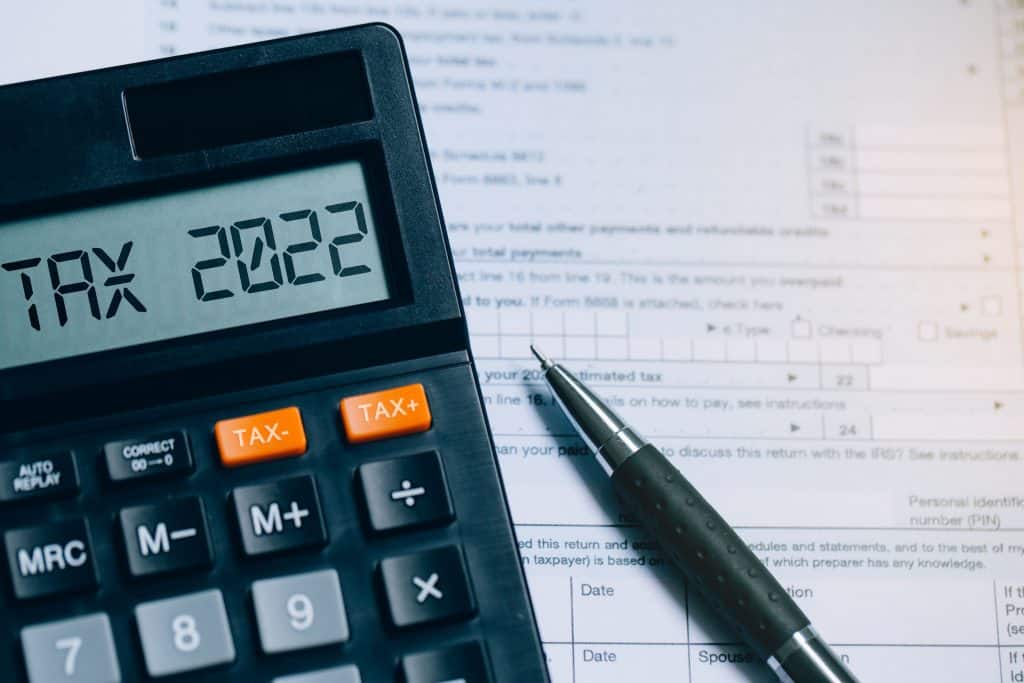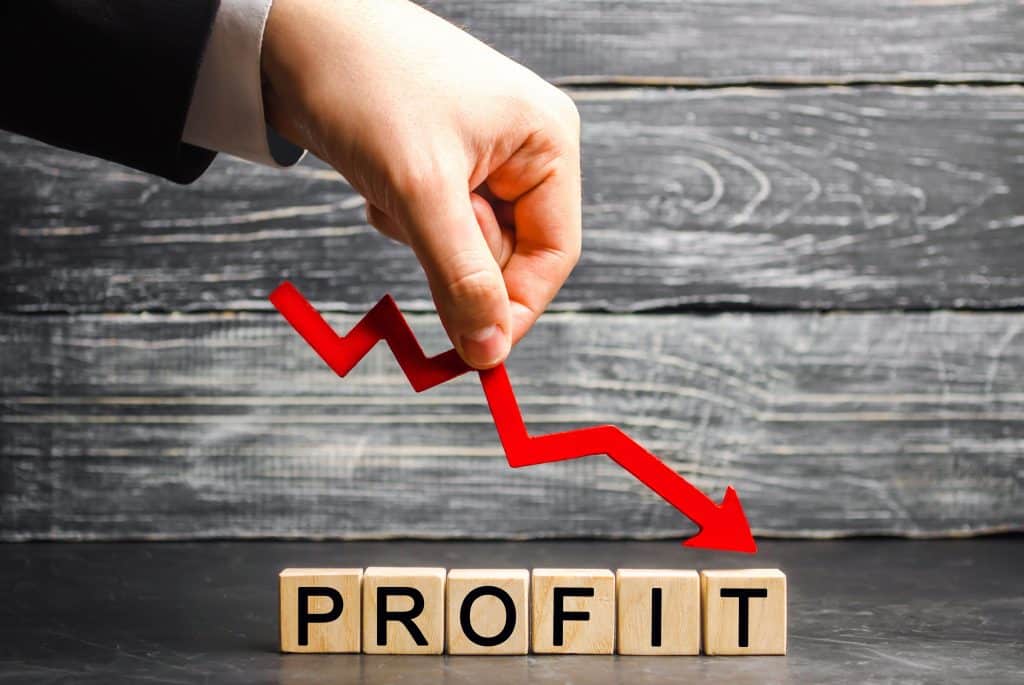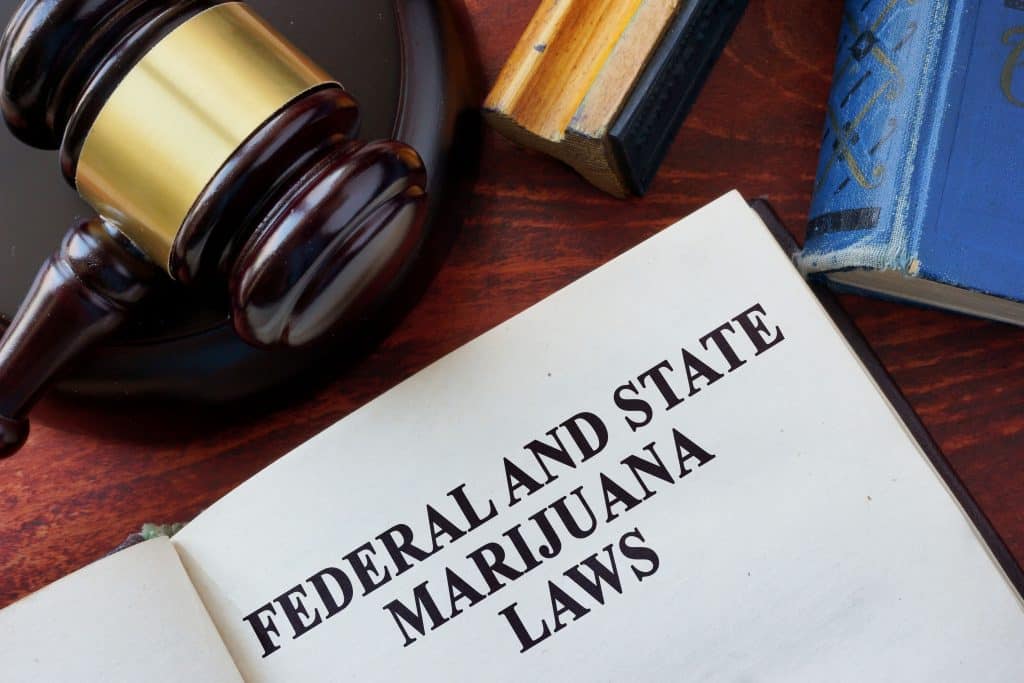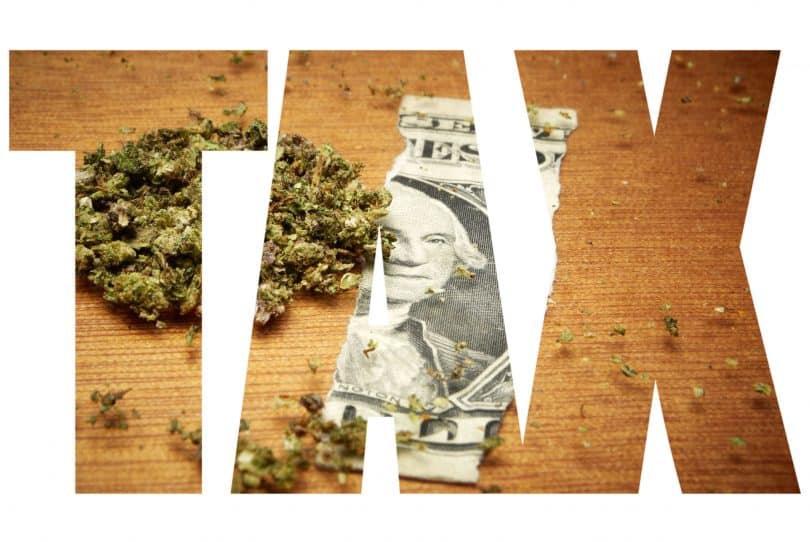It’s a subject that comes up a lot, yet with little done to show the powers-that-be understand, or are willing to make useful changes. According to Whitney Economics, the already overtaxed cannabis industry paid an additional $1.8 billion in unnecessary taxes in 2022 alone. And to the federal government, no less. Why is this happening?
How the cannabis industry is overtaxed… by the federal government
For one thing, we think of cannabis industries as state run industries, and they are. This, however, doesn’t get cannabis companies completely out of having to deal with the federal government when it comes to taxes; and this is part of the issue of the overtaxed cannabis industry. We already know that cannabis is subject to big excise taxes – much of this related to sin taxes, but there’s a whole other avenue for taxation of cannabis via the federal government. In this case, we’re looking at additional taxes to the already high tax schemes developed by the states.
According to research company Whitney Economics, via PRNewswire, the cannabis industry overpaid $1.8 billion in 2022 for additional taxes, outside of the standard tax structures applied by state governments. It predicts that for 2023, the number will increase to $2.1 billion. So, what is this extra taxation that industry operators are subject to? Any how does it relate to the federal government?
It’s called Section 280E of federal tax law. As explained by Iran Hopkins of Akerman LLP, via Bloomberg Law, even though cannabis companies operate legally under state law, ongoing federal prohibition dictates that the companies are still considered ‘traffickers’ under federal law. What is considered legal for a state, is ‘trafficking in a controlled substance’ according to the feds. This applies to any ‘plant-touching’ cannabis business.

What does Section 280E do? Technically, the law is meant to penalize those who traffic drugs of Schedule I and II classing, in that it prevents such traffickers from making certain business expense deductions in their income tax filings. However, real traffickers aren’t likely to file taxes, and here the term relates to legal operations. Such deductions relate to what are usually considered ‘ordinary and necessary’ expenses, which means “after reducing gross receipts by cost of goods sold, or COGS, essentially” this results “in federal income tax liability calculated based on gross income, not net income.”
Basically, it effects a business’s ability to make deductions from their gross income, which can lead to an overall higher tax rate, often too big for the company to make a profit. Cannabis businesses must strongly consider their structures, and be careful with decisions about how the operations are run, in order not to get caught in this trap.
This is especially true of partnerships, where upper-level owners must deal with massive tax liabilities from the federal government, because of the industry they’re in. And while the IRS could clarify points, or make things easier, it has made no move to do so, despite these being state-legal industries.
What does this mean to an already overtaxed cannabis industry?
When we talk about how insanely high cannabis taxes are, we’re talking about measures instituted by the states in question. This issue, however, relates to a whole different problem concerning the federal government, and the ability to make deductions in an income tax filing. We know that according to Whitney, $1.8 billion was paid out in 2022 in unnecessary taxes; money that should have been writen-off as deductibles. What else does it mean?
It means when adding in all the different taxes, between the state implemented ones, and the federal laws, cannabis companies can often be subject to 70% taxes, or even higher. According to Whitney, this is also related to “the lack of banking services, anti-business regulation and lack of interstate commerce.”
All told, for 2022, only 24.4% of legal operators indicated a profit (or at least, of those surveyed). To give an idea of the trajectory of things, the prior year, a much higher 42% claimed to turn a profit.

Said Whitney’s Chief Economist Beau Whitney, “the cannabis industry is under extreme economic distress and the current regulatory and taxation environment is untenable, even in the short term.” He went on to explain that many states are already facing collapse of their industries, something that he said would have a much greater impact on small operators. He pushes that tax reform is ultimately a solution to relieve this industry stress, and the resulting lowered sales and revenue.
What Whitney proposes for the future
Whitney Economics is a leader in consulting, data, and economic research for the cannabis and hemp spaces. Based out of Portland, Oregon, the company works with private enterprises, as well as government agencies on both the state and federal level. It assists in creating reasonable policies and strategies, using economics.
As per the company’s expertise, Whitney Economics believes (by way of conducting a rescoring of tax policy) that reform of Section 280E could help cannabis operators with profitability, as well as help to increase employment and overall activity. It believes economic activity could increase by $35.2 billion, in 10 years.
Recent issues have led industry predictions to drop in general, with a forecast for “anemic growth for the next 7 quarters.” This is along with the industry showing a decline in employment levels for the first time since the industry opened, and many states reporting lowered tax revenue.
One thing to remember, is that this particular problem of overtaxed cannabis relates to a federal tax issue, not to state taxes. It says a lot that lessening this federal burden could make such a difference. And this, in turn, begs the question of how useful getting rid of additional and unnecessary state taxes – like sin taxes, or THC taxes, or cultivation taxes – could be. Whitney didn’t focus on those factors here, just on how the federal government overtaxed the earnings of cannabis operators.
Wait…why is the federal government involved?
To be clear, when Whitney speaks of ‘excess taxes’, its referring not to direct taxes levied on a product or service. Those are the state taxes in terms of the cannabis industry, and include sales taxes, excise taxes, and sometimes other taxes like cultivation taxes or THC taxes. We discuss these taxes all the time, but never about a federal tax amount, since the federal government can’t directly tax what it sees as an illegal industry.

However, that doesn’t mean the federal government doesn’t collect. After all, the federal government collects income taxes, regardless of industry. Even though the federal entity considers the cannabis industry illegal, and doesn’t tax it directly, it does tax overall income of those within it. Cannabis operators, like any other earner, must report earnings to the federal government, and pay whatever taxes are relevant for their specific companies and earning amounts. In this way, the federal government most certainly does backhandedly tax the legal state-run cannabis markets.
This is where deductions come in. Deductions are a major part of paying taxes in that they allow an individual or business to reduce their tax burden by writing off expenses. This means taking costs out of the taxable income, which lowers the amount that the federal government can take in taxes.
Deductions are used in many different categories; from the cost of rent, to the cost of employee benefits, to the cost of bank fees, and so on. If the deductions can’t be made, then the entire amount is taxed. In this case it leads to cannabis companies having to pay for expenses that other businesses can deduct to lower overall tax burden.
It’s a bit confusing since we’re not talking about standard taxes which are applied to something; but rather, amounts deducted (or not) for taxation. No matter how you look at it, Section 280E increases the overall tax burden for cannabis companies, which is already high enough from state regulation, to crush out many companies.
Conclusion
In a way it’s almost funny. States have implemented such expensive tax structures that businesses are being driven out. And that doesn’t even account for the federal government’s part. One thing for sure is, governments of all kinds are greedy, and have made for a greatly overtaxed cannabis industry, that might not survive its overlords.
Hello readers. Cool that you’re here with us at Cannadelics.com; where we work hard daily to bring you the utmost in reporting for the cannabis and hallucinogen industries. Chill with us regularly to keep up with the Joneses; and subscribe to the Cannadelics Weekly Newsletter, so you’re never late to get a story.









